There are some schools of thought that suggest poorly functioning adrenal glands could be an underlying cause in chronic fatigue. Although imbalanced adrenal function could be part of the complex web of fatigue, it is more likely to be a piece of the puzzle than the whole puzzle itself.
That being said, when it comes to recovering energy and vitality, there is seldom one magic solution. Instead, improvements happen when we support the body as a whole. Part of that support may include supporting the adrenal glands. Which is why I wanted to address exactly how to do that.
What are the Adrenal Glands?
The adrenal glands are small glands situated above the kidneys that are responsible for releasing stress hormones such as cortisol, DHEA, epinephrine (adrenalin) and norepinephrine (nor-adrenalin). The adrenal glands are made up of the adrenal medulla and adrenal cortex.
The adrenal medulla releases epinephrine and norepinephrine. The adrenal cortex releases cortisol and DHEA. These hormones are very important for regulating metabolism, the immune system and managing inflammation, maintaining blood pressure, supporting circadian rhythm and helping the body respond to stress.
Additionally, the adrenal cortex releases aldosterone which is a hormone that regulates blood pressure by acting on the kidneys to retain sodium and excrete potassium. This happens via a negative feedback loop when the kidneys detect low sodium, high potassium or low blood pressure.
Imbalances in adrenal function can have an impact on how the body responds to stress, how the body is able to regulate electrolytes, blood pressure and metabolism and also how the body manages inflammation and immunity. All of which could be contributing to the complex web of Chronic Fatigue.
Healthy Adrenal Function
Healthy Adrenal Glands release adrenal hormones according to our circadian rhythm – which is a specific type of biorhythm of physical, mental, and behavioral changes that follow a 24-hour cycle.
For the Adrenal Glands specifically what this means is that the adrenal hormone cortisol should speak about 30 minutes after waking and then gradually decrease across the day, reaching its lowest point around 2am. After which it will gradually begin to increase again. DHEA will follow the same pattern.
The peak in adrenal hormones shortly after waking is known as a Cortisol Awakening Response (CAR). There should be a 50% increase in cortisol at this time and it is considered to me a marker of healthy adrenal function.
Epinephrine and norepinephrine are released slightly differently. They will also rise in a similar rhythm as the CAR, however, during the day they may be more moderate and responsive to acute stressors, for example low blood sugar or emotional stress.
Signs of Adrenal Dysfunction
There can be different stages of adrenal dysfunction broadly categorised as adrenal hyperfunction or adrenal hypofunction.
Adrenal Hyperfunction may be associated with high cortisol and/or epinephrine/norepinephrine output which relates to symptoms such as:
- Difficulty falling asleep
- Feeling wired
- Feeling anxious
- High blood pressure
- High blood sugar
- Weight gain
- Increased thirst and urination
- Increased heart rate
Adrenal Hypofunction may be associated with low cortisol and/or epinephrine/norepinephrine output which relates to symptoms such as:
- Difficulty staying asleep
- Craving salt
- Being a slow starter in the morning
- Afternoon fatigue
- Low blood pressure
- Dizziness when standing
- Afternoon headaches
- Headaches on exertion or with stress
- Hypoglycemia
You may resonate with both the symptoms of adrenal hyperfunction and adrenal hypofunction this could be due to a combination of having low cortisol levels (adrenal hypofunction) but higher levels of epinephrine and norepinephrine which are governed by the autonomic nervous system. This is where testing may be useful to establish if your cortisol levels are high or low.
Testing Adrenal Function
Cortisol can be tested in blood, urine or saliva. The most reliable test is a saliva test.
There are various testing companies that offer cortisol saliva testing such as Genova Diagnostics and Precision Analytical (UK provider being Regenerus).
It is important to understand when testing adrenal function that you are testing a snap shot of a specific moment in time. Variables such as caffeine, exercise, blood sugar imbalances, supplements, emotional stressors, illness or where a woman is in her menstrual cycle may all influence test results. I will often ask a client to keep a diary of influencing variables on the day of testing so that we can interpret the results in context of their experience.
Often the marker(s) I am most interested in is the CAR and I will always make sure this is included in the test (not all adrenal tests will include CAR). CAR is the peak in cortisol that should happen within 30 minutes of waking. Therefore a saliva sample is taken on waking, 30 minutes after waking and 60 minutes after waking. There should be a 50% increase in cortisol in this time.
A low CAR is much more concerning to me than an elevated CAR because of the influence adrenal output may have on neurochemistry, the immune system, metabolism and additional hormone signalling. Someone with a low CAR is likely to be someone who really struggles with their morning energy, they may have problems with blood sugar control and be prone to hypoglycemia. This individual may need support to help their adrenal glands function better.
If someone has a higher than normal CAR or generally higher adrenal output the most important thing is that their adrenal glands are able to respond to stress. The strategy in this case is to remove triggers and lower the stress load.
It is noteworthy that both people with high and low adrenal output can experience fatigue (see examples below) likely because there may be multiple contributing mechanisms to their clinical picture. We want to work towards optimising health as a whole. Testing allows us to create a support plan that is specific to the individual.
Client A: Elevated Adrenal Output + Chronic Fatigue
Client B: Low Adrenal Output + Chronic Fatigue
How To Support Low Adrenal Output
Blood Sugar Management
One of the most powerful tools we have to support adrenal output is blood sugar management. When blood sugar drops too low, the adrenal glands release epinephrine and cortisol. These are energy liberating hormones that help to liberate stored glucose from the liver and muscle tissue. The resultant effect is an increase in blood glucose.
However, glucose released into the bloodstream also needs to get into the cells. This means that the pancreas must also release a surge of insulin to help get the energy into the cells. At the same time, the pancreas is also producing glucagon which stimulates glucose production in the liver. This means that in a hypoglycemic event, both the adrenal gland and the pancreas are working very hard to maintain a sense of stability.
In a healthy person, these counterregulatory mechanisms will kick in before they even notice. But when someone has lost resiliency they may be ineffective or delayed and the individual will experience hypoglycemia symptoms.
When you are able to stabilise your blood sugar levels around meals better, this can give the adrenal glands (and pancreas) a break and there is the opportunity to improve resiliency over time.
People who are prone to hypoglycemia (low blood sugar) may have to be very consistent with their blood sugar management for a period of time to support adrenal rebalancing. It is not something that you can dip in and out of. You can read more about how to do this in my blog: Hypoglycemia: How to Identify and Address Low Blood Sugar In Chronic Fatigue
Electrolytes
Aldosterone is one of the adrenal hormones which is responsible for regulating blood pressure and electrolytes. Low blood pressure can be a sign of adrenal dysfunction which can link back to too little sodium and not enough potassium.
A high sodium electrolyte supplement taken in the morning, when the adrenal glands have to work their hardest, can be supportive for the adrenal glands. My favourite product is RePowr and you can get 10% off using the code ANNAMARSH.
Additionally, especially if you consume a wholefoods diet of unprocessed foods, consider adding extra salt to your food or consume salty foods such as:
- Stock cubes
- Pickles
- Olives
- Biltong (the South African’s know!)
- Bone broth with extra added salt
Glycyrrhiza Glabra
Glycyrrhiza Glabra is the active component in licorice root that may slow the breakdown of cortisol by inhibiting the enzyme 11-beta-hydroxysteroid dehydrogenase which converts cortisol to cortisone. This could be taken in supplement form upon making and again around midday. It may also raise blood pressure so best taken by those with normal blood pressure to help raise it. If your blood pressure is normal, you could still take it but you want to be mindful of regular monitoring and discuss with your health care provider. The product which I like is this Adrenal AM by the Poliquin Group.
Even if morning CAR is optimal but there is a drop in adrenal function later in the day, this can be a supportive supplement to prolong the availability of cortisol released earlier in the day.
Adrenal Adaptogens
Adrenal adaptogens are herbs that have a beneficial impact on adrenal function. They work synergistically which means it may be better to take a product which combines several types than single herbs. These include:
- Holy Basil
- Rhodiola Rosea
- Withania Somnifera
- Siberian Ginseng
- Ashwagandha
Calming Adaptogens
Sometimes we can see a low cortisol output during the day and then a peak at night time or later in the day. If someone struggles to fall asleep it can be supportive to add in diet, lifestyle and supplement modifications which are specific to this window. Blood sugar management is an essential foundation. On top of this one could consider supplements such as L-theanine, Lemon Balm, Valerian or Phosphatidyl Serine.
Improving CAR Specifically
There are 3 lifestyle interventions that can be done in the morning that may be supportive for restoring CAR. These are:
- Sunlight / Bright Light
- Exercise
- Cold Shower
Someone with a low CAR will likely feel tired and unmotivated in the morning and taking these actions may initially require a bit of willpower and determination.
Sunlight or Bright Light
Irrespective of your CAR, we should all be viewing sunlight first thing in the morning. There is a link between mast cell dysfunction and sleep and circadian rhythms. A disturbed circadian rhythm can impact mast cells and once mast cells are activated this can impact sleep.
Therefore, if you are someone with a low CAR, if you struggle with sleep and have problems with Mast Cell Activation, this should be an essential part of your morning routine.
The dosage is as follows:
- 3 minutes on a sunny day
- 10 minutes on a partly cloudy day
- 20-30 minutes on a cloudy or rainy day
If you wake up before sunrise, expose yourself to bright lights or ideally a 10 000 LUX light and then get outside later in the day. Generally spending as much time as possible outside during the day can be supportive for our adrenal glands, circadian rhythms, mast cells and overall health.
Exercise
Not everyone with fatigue can exercise so this option is often not accessible to most people. If you are able to complete some form of exercise or movement, do so at the highest intensity that is safe for you for 10 minutes very soon after waking.
In some cases when adrenal function is low, high intensity exercise is not well tolerated. It can cause blood sugar imbalances and energy crashes. In which case, if you are able to exercise, it may be worthwhile considering moderating exercise intensity and avoiding high intensity exercise.
Cold Water
Cold water exposure offers a range of health benefits. In addition to being a hormetic stressor, which means it can induce an anti-inflammatory effect on the body it may:
- Raise epinephrine and norepinephrine (adrenalin and nor-adrenalin) – both of which may increase energy and focus
- Improve resilience and “grit” – because we are encouraging ourselves to do something uncomfortable which may then carry over to other scenarios in our life.
- It may cause a prolonged increase in dopamine – up to 250x our baseline – which can improve energy, attention, focus, mood and internal drive
- In the short term it may increase metabolism, as we burn calories to keep ourselves warm. Frequent cold exposure may support the conversion of white fat to brown fat which improves cold tolerance and may increase metabolism longer term.
Cold exposure is not for everyone and it would not be the first intervention that I would recommend. Just like exercise, because it may strain a system which is already under considerable strain, there is a risk of doing too much. That being said, if you can tolerate a 90 second cold shower in the early morning, and you feel good for it, it may be a worthwhile intervention.
How to Support High Adrenal Output
Blood Sugar Management
Blood sugar management is important whether you have high or low adrenal output. Highs and lows in blood sugar will be an additional strain on the adrenal glands and the goal when supporting high adrenal output is to reduce triggers where possible. To learn more about blood sugar management, you can refer to my blog: Carbohydrates, Blood Sugar, Glucose Monitoring and Chronic Fatigue.
Often when adrenal output is high the metabolism can be working very hard all the time. This might mean that you need to eat more frequently and ensure that meals are high in protein and fat to prevent exacerbating sugar crashes.
Nervous System Support
High adrenal output will likely be due to real stress and/or the perception of stress. Oftentimes we may not feel stressed but we may have become accustomed to a high level of baseline stress that is just “normal” for us when in fact, it is too high. We live in a very stressful world with a degree of stimulation that we have not yet evolved to cope with. All humans could benefit from a toolbox which allows them to support their nervous system better. This is the function of the Nurturing Resilience Subscription that I created. However, if you would like to learn more about your nervous system in the context of Chronic Fatigue specifically I would recommend you watch my Free Workshop: Getting To Know Your Nervous System.
Adrenal Adaptogens
Adrenal adaptogens can be beneficial whether your adrenal output is high or low. Additionally you may want to consider adding calming herbs and nutrients such as:
- L-theanine
- Lemon Balm
- Passion Flower
- Valerian
- Magnesium Glycinate
Nutrients
The adrenal glands rely heavily on specific nutrients such as vitamin C, B-vitamins (especially vitamin B5) and magnesium. A good quality B-complex and additional magnesium are my favourite choices.
Electrolytes
Electrolytes may be supportive if adrenal output is high. If blood pressure is normal or high, you could consider favoring an option with more potassium and less sodium such as Electrolyte Select by Moss Nutrition.
Exercise
In some ways, exercise can be supportive to “burn off” excess adrenalin. However, exercise can be a stress on the body and add to the total stress load. In which case, more gentle forms of exercise (if tolerated) would be advised. For example: yoga, qigong, walking, swimming etc.
Conclusion
Adrenal output can be worth considering and supporting in the context of Chronic Fatigue. Interventions need to be tailored towards the individual to prevent harm and to gain the best possible outcomes. Testing can be helpful to inform intervention decisions but even without testing some basic practises like proper blood sugar management, nervous system care and general use of adaptogens and nutrients such as B vitamins and magnesium can be helpful.










